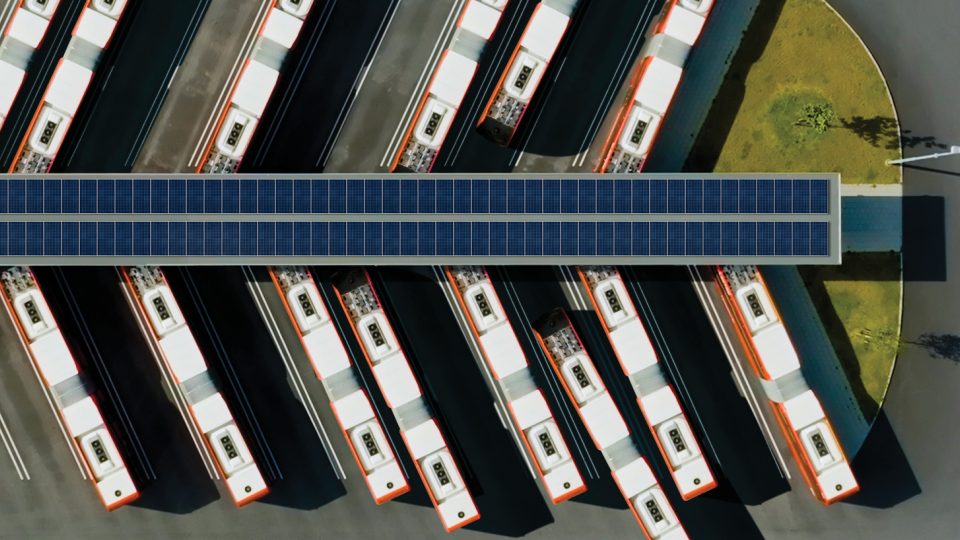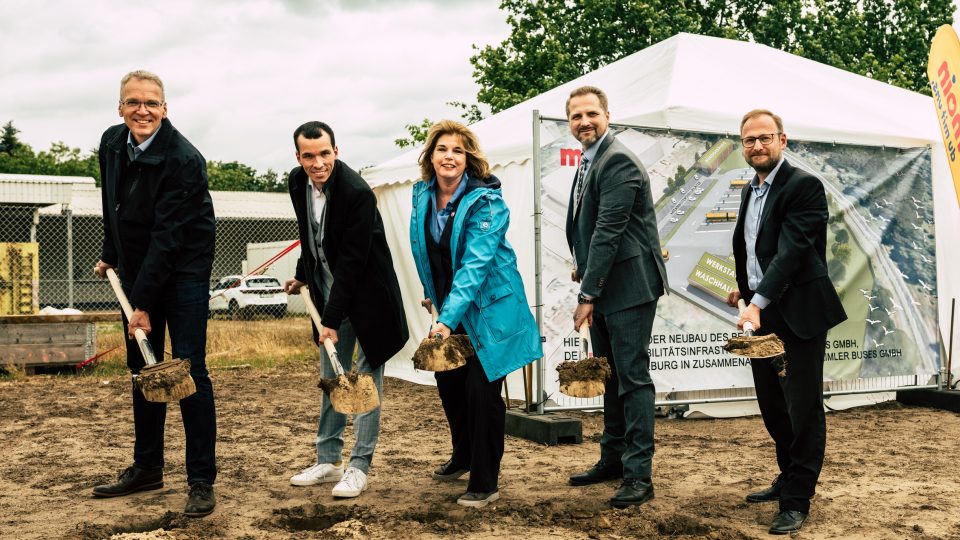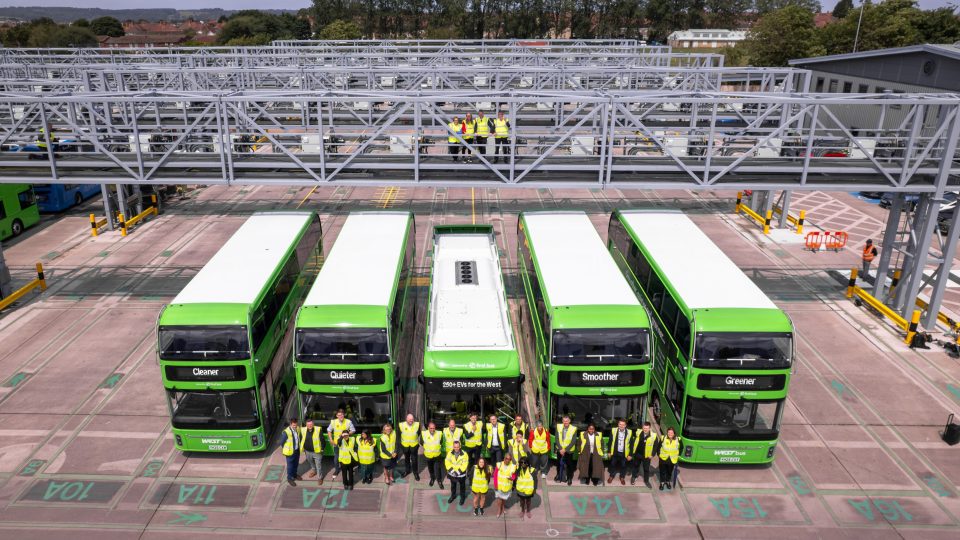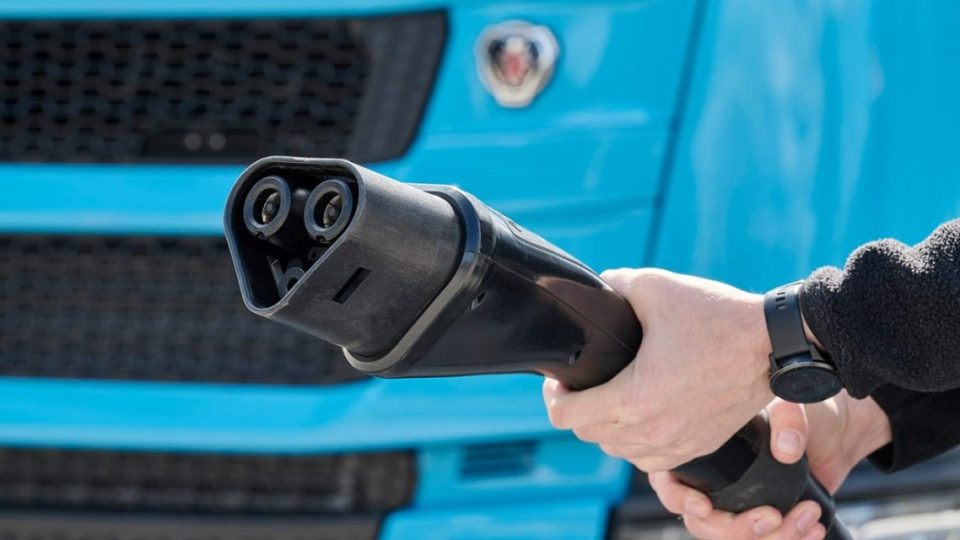Fast charging station built in Basel on the way to full electrification of bus fleet by 2027
Basel’s public transport company, Basler Verkehrs-Betriebe (BVB), has completed the construction of a charging station for electric buses at the Kleinhüningen stop near Hochbergerplatz. The charging station, which took eleven months to build, will supply renewable energy to the city’s growing electric bus fleet. BVB is fulfilling the legal requirement that all public transport in the […]
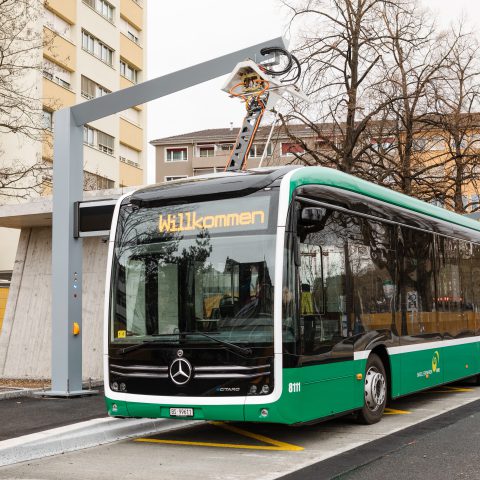
Basel’s public transport company, Basler Verkehrs-Betriebe (BVB), has completed the construction of a charging station for electric buses at the Kleinhüningen stop near Hochbergerplatz. The charging station, which took eleven months to build, will supply renewable energy to the city’s growing electric bus fleet.
BVB is fulfilling the legal requirement that all public transport in the canton of Basel-Stadt must run on 100 percent renewable energy by 2027. 27 e-buses are in service as of today
In addition to the procurement of more than 120 e-buses in two stages (64 already ordered from Hess and Mercedes), an efficient charging infrastructure will also be created. IWB, which is responsible for the power supply, has commissioned ABB as its technology supplier and partner for the project.
The new charging station at the Kleinhüningen stop, which will allow two electric buses to recharge their batteries simultaneously, is one of the essential charging points for long bus lines such as line 36. The charging station will be powered by an underground transformer station, which has also been constructed to provide a secure and reliable renewable energy supply.
In addition to the charging infrastructure at Messehalle 3 and Klybeck, two temporary locations, and the Rank garage, which is under construction, the BVB will install charging stations at the end of long bus lines. The renovation of the Kleinhüningen stop has created a level platform that will allow passengers to board and exit the buses more easily.
The construction project also included the renovation of the Hochbergerplatz road and sidewalk, which were in poor condition. The energy and water lines have also been repaired by IWB, a local energy provider.




